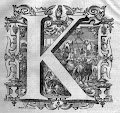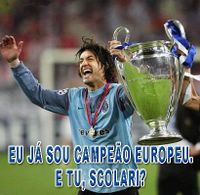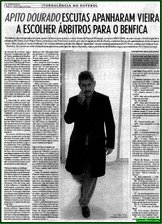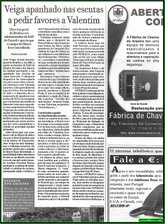Born and died Bergman (August 29, 1915 – August 29, 1982) Academy Award-winning Swedish actress.
Ingrid Bergman was born in Stockholm, Sweden. When still very young, she lost both of her parents and was raised by relatives; she studied at the Royal Dramatic Theater in Stockholm and had a small role in Munkbrogreven (1934), her first movie. After a dozen films in Sweden, Bergman was signed by David O. Selznick to star in the English language remake of of her earlier 1936 Swedish language film, Intermezzo (1939). The film was an enormous success and "Sweden's illustrious gift to Hollywood" had arrived.
After completing a few pictures in Sweden and appearing in three successful films in the United States, Bergman joined Humphrey Bogart in the 1942 classic film Casablanca. Two years later she received her first Academy Award nomination for Best Actress for the film, For Whom the Bell Tolls (1943). The following year she won Best Actress for Gaslight (1944). She received a third consecutive nomination for Best Actress with her performance in The Bells of St. Mary's (1945). She would receive another Best Actress nomination for Joan of Arc (1948). Alfred Hitchcock who directed her in Notorious and Spellbound was known to be obsessed about her.
In 1949 Bergman met director Roberto Rossellini. She fell in love with him while performing in his film Stromboli (1950). Bergman left both her husband, Dr. Aron Petter Lindström and their daughter Pia Lindström for Rossellini, and they married and had 3 children, including twin daughters actresses Isabella Rossellini, Isotta Rossellini, and a son, Roberto Ingmar Rossellini. The affair caused was a scandal in both Hollywood and with the public; Bergman, who was pregnant at the time of the marriage, was branded as "Hollywood's apostle of degradation" and forced to leave the States.
With her starring role in (1956)'s Anastasia, Bergman made her post-scandal triumphant return to Hollywood and won Best Actress for a second time. She would continue to alternate between performances in American and European films. She received her third Academy Award (and first for Best Supporting Actress) for her performance in Murder on the Orient Express (1975), but she publicly declared at the Academy Awards telecast that year that the award rightfully belonged to Italian actress Valentina Cortese. In 1978 she played in Ingmar Bergman's Autumn Sonata (also known as Höstsonaten) for which she received her seventh Academy Award nomination and made her final performance on the big screen. It is considered to be among her best performances.
She could speak Swedish, German, French, English and Italian fluently, which caused fellow actor John Gielgud's remark, "She speaks five languages, and can't act in any of them", which, given her prodigious talent, must have been a joke. Her last husband, Lars Schmidt, was a callow and much-younger man, but Bergman accepted his dalliances with equanimity.
She died of complications from terminal breast cancer on her 67th birthday (which caused some to intimate that she had hastened her own end) in 1982 in London, England. She was cremated in Sweden, her ashes scattered with a part kept to be interred in the Norra begravningsplatsen in Stockholm.
Bergman was honored posthumously with an Emmy Award for Best Actress in 1982 for the television mini-series A Woman Called Golda, about the late Israeli prime minister Golda Meir.
For her contributions to the motion picture industry, Ingrid Bergman has a star on the Hollywood Walk of Fame at 6759 Hollywood Blvd.
Filmography
Landskamp (1932)
The Count of the Old Town (1935)
The Surf (1935)
Swedenhielms Famly (1935)
Walpurgis Night (1935)
Intermezzo (1936 movie) (1936)
On the Sunny Side (1936)
Dollar (1938)
The Four Companions (1938)
A Woman's Face (1938)
One Single Night (1939)
Intermezzo (1939 movie) (1939)
June Night (1940)
Rage in Heaven (1941)
Adam Had Four Sons (1941)
Dr. Jekyll and Mr. Hyde (1941)
Casablanca (1942)
For Whom the Bell Tolls (1943)
Swedes in America (1943) (short subject)
Gaslight (1944)
Spellbound (1945)
Saratoga Trunk (1945)
The Bells of St. Mary's (1945)
American Creed (1946) (short subject)
Notorious (1946)
Arch of Triumph (1948)
Joan of Arc (1948)
Under Capricorn (1949)
Stromboli (1950)
The Greatest Love (1952)
Journey to Italy (1953)
Of Life and Love (1953)
Fear (1954)
Joan of Arc at the Stake (1954)
Paris Does Strange Things (1956)
Anastasia (1956)
Indiscreet (1958)
The Inn of the Sixth Happiness (1958)
Goodbye Again (1961)
Auguste (1961) (cameo)
The Visit (1964)
The Yellow Rolls-Royce (1964)
Stimulantia (1967)
Cactus Flower (1969)
Henri Langlois (1970) (documentary)
Walk in the Spring Rain (1970)
From the Mixed-Up Files of Mrs. Basil E. Frankweiler (1973)
Murder on the Orient Express (1974)
A Matter of Time (1976)
Autumn Sonata (1978)
Wikipedia
































.jpg)







































.jpg)








